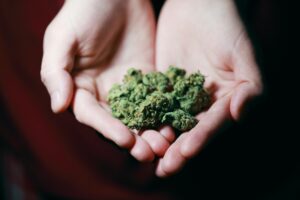Opioid-related deaths have become a significant public health concern in Canada. Between 2016 and 2023, more than 38,000 opioid toxicity deaths were reported in the country alone. On an international level, 80% of drug-related deaths annually are connected to opioid overdoses. Research in recent years has centered on alternative methods to help those with opioid use disorder, and CBD is coming into the spotlight as a potential solution.
CBD’s Effects on Cravings, Withdrawal and Recovery
It is important to state that research on CBD and opioid dependency is still inconclusive. Nevertheless, numerous studies draw attention to its potential.
In a 2016 study conducted at the Mount Sinai School of Medicine, researchers found that CBD mitigated cue-induced cravings in rats by rectifying neural communication disruptions caused by opioids. Building on this finding, they conducted a subsequent study with a select group of humans. Their results indicated that CBD effectively diminished these specific cue-induced cravings for up to one week.
Kudrich et al.’s 2022 review shows that CBD can offer relief during the intense 1-2 week withdrawal period that most opioid users experience when seeking sobriety. This may be a result of its therapeutic attributes, which encompass antidepressant, anti-inflammatory, and analgesic effects, along with the ability to reduce cue-induced cravings for opioids. Another study in the same review found that CBD helped alleviate opioid cravings in users who had achieved sobriety, suggesting that it could help people maintain their recovery.
There is a mounting body of evidence indicating that CBD might be incorporated into the conventional opioid detoxification protocol to alleviate both acute and longer-term symptoms associated with withdrawal.
What is Holding us Back?
With the promising research surrounding CBD and its potential role in addressing opioid dependency, it might be expected that a multitude of studies would want to bridge the gap between theory and practical application.
Yet, that does not seem to be the reality. Neurobiologist at Icahn School of Medicine, Yasmin Hurd, Ph.D. explains, “Clinical trials that test new drugs (or new uses of existing drugs) are very expensive and are usually conducted by pharmaceutical companies that have substantial resources. Historically, few companies have been interested in developing medications for opioid use disorder, something that really pains me, given the desperate need to treat so many people suffering from this disorder.” Despite the evident potential of CBD, the pathway to its widespread therapeutic application appears to remain obstructed by financial and industry barriers.
Final Thoughts
Given the exponential rise in overdose-related deaths in Canada over the last decade, solutions to the opioid crisis are critical. The promising research on CBD and its effects on opioid use disorder suggest there is hope and a still untapped potential. Notably, CBD has demonstrated significant impacts on cravings, withdrawal symptoms, and the broader recovery process. The opioid crisis requires innovative solutions, and CBD appears to be an excellent option to be explored.
© Kanab Inc. – Kanab Inc. is a Toronto based cannabis retail company that honors the historical significance and uses of the cannabis plant across cultures and civilizations. Kanab has now opened its first cannabis dispensary at the intersection of Don Mills Road and York Mills Road in North York region of Toronto, Ontario (South of 401, West of 404 / Don Valley Parkway, and East of Leslie). For more info, please visit: kanab.ca






